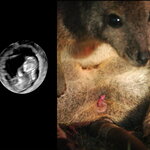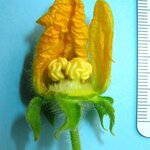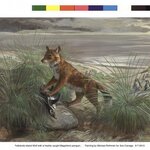
Marsupials represent approximately 6% of all mammal species and include iconic pouched mammals like the kangaroo, wombat and koala. Compared to eutherian mammals like the dog, cow and human, marsupials have ultra-short pregnancies and give birth to very immature, almost embryonic, young that complete most of their development attached to the teat, usually within a pouch.Even kangaroos, the largest extant marsupials, give birth to a newborn that weighs less than one gram and must climb blind and unaided from the birth canal to the pouch.
Using high-resolution ultrasound, …


